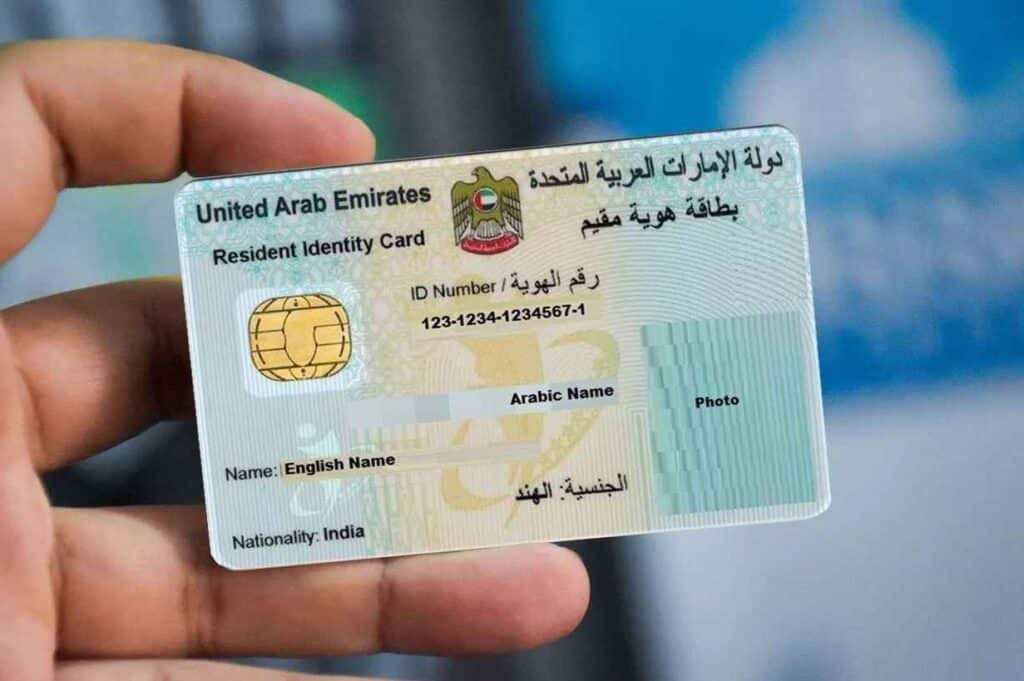Dubai has rapidly become one of the world’s leading destinations for digital nomads. With its combination of modern infrastructure, vibrant lifestyle, excellent connectivity, welcoming visa policies, and relatively favorable tax environment, the city offers many opportunities for remote workers, freelancers, entrepreneurs, and anyone who wants to work from somewhere exciting. In this article we explore three of the best opportunities for digital nomads in Dubai in 2025. For each, we explain what the opportunity is, why it is promising now, what you need to take advantage of it, and what pitfalls to watch out for. Whether you are a freelancer, startup founder, or remote employee, there is probably something for you here.

Opportunity 1: Digital Nomad / Remote Work Visa and Lifestyle
What this opportunity is
One of the most direct ways for digital nomads to take advantage of Dubai is via the Remote Work Visa (also called Digital Nomad Visa or Virtual Work Permit). This visa allows people who are employed by companies outside the UAE, or running their own businesses overseas, to live in Dubai for a period (often one year) while working remotely.
Beyond just the visa, the opportunity is also in adopting a lifestyle in Dubai that supports remote work: abundant coworking spaces, high speed internet, excellent amenities, aeroplanes and airports, travel connections, plus a cosmopolitan environment with many people in similar situations.
Why it is promising in 2025
There are several reasons why this opportunity is strong in 2025:
- Visa policy improvements: The remote work visa regime has become more streamlined, better documented, with clearer eligibility requirements. Dubai offers easier processes for applying, greater clarity on residency rights, and more flexibility in renewing or extending stays (for those who satisfy the requirements).
- Infrastructure: Internet speeds, co-working & hot-desk facilities, shared offices, cafes with work-friendly environments have all improved. Public transport and mobility make living in various parts of the city possible without sacrificing connectivity.
- Integration of community & services: Social groups, coworking communities, networking events are more common. For example, platforms and spaces dedicated to remote workers and nomads are now part of Dubai’s ecosystem. These facilitate collaboration, support, and learning.
- Quality of life: With good safety, healthcare, education, entertainment, beaches, food, culture etc, Dubai offers many of the non-work benefits that remote workers seek.
- Financial benefits: No personal income tax, relatively stable cost of living, a strong luxury service sector, good medical services, etc make it attractive.
What you need to do to take advantage
If you want to use this opportunity, here are the steps and preparations:
- Check eligibility for the Remote Work Visa. Typically this involves proving you are employed abroad or own a business outside the UAE, that you have a minimum income, valid passport, health insurance, sometimes proof of remote work tools etc.
- Make sure you have reliable remote work setups: good laptop, backup power/internet plans, VPN if required, good communication tools.
- Decide where to live: choose neighborhoods or free zones with coworking options, amenities, connectivity. Consider cost of housing, transportation, and visa / residency costs.
- Understand legal requirements: registration, visa fees, renewals, what local rules you need to follow (e.g. if opening bank account, accessing certain services, etc).
- Plan for bank, finances, currency exchange, remittance. Also insurance and health care coverage are important.
- Build community: connect with other digital nomads in Dubai, attend local meetups or remote work groups, co-working spaces, online forums.
Challenges & pitfalls to watch out for
- Cost of living: Dubai is not cheap. Housing, schooling (if needed), utilities, food, automobiles can add up. Even though income tax may be zero, those other costs matter.
- Visa expiration or renewal uncertainty: rules can change, renewals may require stricter compliance or showing proof of continued income.
- Cultural & legal rules: customs, licensing, permissions, local regulations may differ from your home. Doing business or freelancing locally may require additional licensing or compliance.
- Time-zone issues: depending on where your clients/employer are, time differences may mean early mornings or late nights.
- Longevity: Dubai may be ideal for one or two years, but for long term you must consider whether your savings or scale of income will support accommodations over time.

Opportunity 2: Freelance & Creative Industries
What this opportunity is
For digital nomads who are creatives, content creators, designers, writers, video makers, social media influencers or working in advertising or media, Dubai is offering growing opportunities. This includes setting up as a freelance business (perhaps in a free zone), getting clients globally, or participating in local creative projects.
Also, creative industries overlap with digital marketing, e-commerce content, UX/UI, multimedia projects, graphic design, podcasting, and other remote content creation. If you have those skills, you can both serve clients globally and possibly tap into local clients in Dubai/MENA who want high-quality creative work.
Why it is promising in 2025
- Freelance visa / permit options: Dubai has started relaxing some regulations for freelancers, with free zones offering licenses or permits enabling freelance work. These make it easier to operate legally and access services.
- Demand for content & creatives: Globally and regionally, companies are investing more in digital marketing, video content, social media, online branding. Dubai is central to these trends.
- Events, media, startups: There are many media events, exhibitions, conferences etc in Dubai and the UAE. Also many startups and digital agencies are headquartered or have branches here, so creative freelancers are in demand.
- Global portfolio work: As a creative, you can work for clients anywhere. Dubai provides a stable base, good connectivity, high quality services (studios, editing labs, photography, design agencies etc).
- Lifestyle benefits: For many creative nomads, environment matters. Dubai offers luxury, beaches, modern amenities, travel hub for exploring nearby countries, etc. These help maintain motivation, inspiration, work/life balance.
What you need to do to take advantage
- Acquire or maintain a strong portfolio of work. Showcase your creative abilities, past projects, references. Use online platforms to get global clients.
- Register your freelance or small creative business (if required) under a free zone or license that allows creative work. This gives legitimacy, ability to invoice, banking access, possibly residency.
- Invest in tools: high quality computer, camera, microphones, editing software, etc if content creation is your domain.
- Network locally: attend local creative meetups, festivals, digital marketing agencies, photography groups etc. You may get collaborations or local contracts.
- Understand legal and copyright issues: media, content licensing, distribution can have legal considerations. Make sure you are compliant.
- Price your services well: account for cost of living, supply and demand, your level of specialization, and overheads.
Challenges & pitfalls
- Competition: globally there are many creative freelancers; pushing differentiation is important.
- Payment delays: cross-border payments, currency fluctuations, contracts can be tricky.
- Regulatory or licensing complexity: some creative or media work may require special permits, especially if doing work targeting local media or broadcasting.
- Cost of equipment, studio, office space if needed.
- Cultural sensitivities: content must respect local culture, norms, laws.

Opportunity 3: Remote Tech, IT, and High Value Online Skills
What this opportunity is
This covers high-value remote jobs or freelance/contract roles in technology: software development, UI/UX design, cybersecurity, cloud architecture, data science, DevOps, product management, etc. If you have in-demand skills, you can serve clients around the world while basing yourself in Dubai under a remote work visa or similar arrangement.
Another sub-opportunity is starting an online business (SaaS, apps, digital tools) or consulting remotely. This is particularly apt for those who want more scale: not just one-off freelance gigs but recurring revenue or higher margin remote work.
Why it is promising in 2025
- Strong demand: Companies globally still need skilled remote tech workers. There are more remote-friendly companies than ever. Dubai’s policies support remote work and the city is seen as among top global destinations for digital nomads.
- Growing startup scene: Dubai and UAE have been pushing startup ecosystems, innovation hubs, tech incubators, investment funds, accelerator programs. Thus there are opportunities not just in serving global clients but also in local tech entrepreneurship.
- High-earning potential: Tech roles tend to pay well, even for remote or freelance variants. When you base yourself in a place like Dubai with favorable taxation (no personal income tax), the net can be quite attractive.
- Support services & infrastructure: Reliable high-speed internet, cloud infrastructure, availability of coworking, tech talent, mentorship, etc.
What you need to do to take advantage
- Upskill continuously in tech areas that are in demand (cloud, AI/ML, cybersecurity, etc). Certifications, specialty tools, being current are important.
- Build a remote-friendly portfolio. Projects you can show, open source, side projects etc help.
- Find remote roles on global platforms or through networks. Also approach Dubai-based tech firms, startups, agencies that might allow remote or hybrid roles.
- Ensure you have good tools: reliable internet, backup, remote collaboration tools, good workspace.
- Know pricing strategies: charging USD or premium rates, negotiating contracts, understanding rates in your specialty.
- Understand legal/regulatory implications: where your income is taxed, visa work restrictions, licensing if offering certain services locally etc.
Challenges & pitfalls
- Risk of isolation: remote tech work can be demanding and solitary.
- Competition from global market lowers rates in some cases: clients may expect lower pricing from nomads from different regions.
- Exchange rate, banking, payment methods can add friction.
- Local licensing or regulation may restrict certain tech services or require local partner or approvals.
- Cost considerations: housing, visa fees, cost of living, etc may offset some of the higher income unless planned well.
Comparative Summary: Which Opportunity May Suit You Best
| Type of Nomad | Best Suited For | Earning Potential | Startup Costs / Overheads | Risk Level |
|---|---|---|---|---|
| Remote Work Visa / Digital Worker | Full-time remote employees, people with stable income from abroad | Medium to high, depending on job | Lower overhead if using home office or co-working | Lower risk if income stable |
| Creative & Freelance Industries | Creatives, content creators, media, designers | Varies widely; potential high for niche/unique skills | Equipment, branding, possibly studio or software | Medium; income less stable |
| Tech / Online Skills / SaaS / Consulting | Developers, data scientists, product people, startup founders | High if scaled; recurring revenue possible | Higher initially for tools, credentials, perhaps local setup | Higher risk but higher reward |
Your ideal choice depends on your skills, risk tolerance, income stability, and ambition. If you prefer more predictable income, remote work visa route is safer. If you value freedom and creative expression, creative freelancing may be better. If you’re aiming to scale and make high revenue, then tech and consulting or launching a product is most promising.

Practical Steps to Get Started in Dubai in 2025
Regardless of which opportunity you aim for, several practical steps are common. These ensure you establish yourself properly, legally, and maximize your benefits.
- Obtain the correct visa Apply for the Remote Work Visa or Virtual Work Permit if your job is remote or freelance and income qualifies. If you want long-term stability, explore options like the Golden Visa for investors, tech talents or creators. Make sure to understand durations, renewal requirements, entry rules, health insurance, proof of income etc.
- Set up banking and finances Open a bank account in UAE if you qualify. Ensure you have international payment options. Consider whether you need to maintain home country accounts. Plan for currency exchange fees, payment platform fees. Consider tax implications in your home country if you are resident or liable there.
- Choose your place to live and workspace Dubai offers many neighborhoods and free zones. Choose one with good internet, coworking spaces, accessibility to amenities. Decide whether to live in downtown, beach areas, newer developments, free zones etc. Coworking spaces such as Astrolabs, Nook, others are good choices. Also look for community-oriented places to avoid loneliness.
- Legal compliance and business licensing If you plan to offer services locally or have clients in UAE, you may need a license, trade permit, or freelance permit depending on free zones. Be aware of local regulations for your industry. Also ensure compliance with any visa or residency law related to work, medical insurance, etc.
- Build your reputation, network, and portfolio Local networking (meetups, co-working spaces, events) is valuable. Also online presence through portfolio, social media, website. Referrals and reviews matter. For creatives or consultancy, quality of work is often more important than quantity.
- Manage costs carefully Budget for accommodation, visa fees, health insurance, transport, utilities. Account for seasonal swings (utilities, cooling etc in summer). Use coworking or shared offices if full office setup is expensive. Use local services/resources sensibly.
- Stay updated with policies UAE laws, visa rules, licensing for freelancers or creatives can change. Monitor government announcements. Make sure renewals are timely. Be ready for policy changes that might affect remote work or freelancing.
Real-World Examples (Hypothetical Case Studies)
Here are a few scenarios to illustrate how people might leverage these opportunities in Dubai in 2025.
Case Study A: Full-time Remote Software Developer from Europe
Maria is a software developer working for a European company entirely remotely. She applies for the Remote Work Visa, providing proof of her employment contract, income above required threshold, and health insurance. She moves to Dubai, rents a serviced apartment, joins a coworking space near her home, and works on UTC+2 projects, occasionally adjusting hours. She benefits from the lifestyle, no disruption in workflow, saves on personal income tax (if she had any), and gains networking opportunities with other tech people in Dubai.
Case Study B: Creative Freelancer / Content Creator from Asia
Ravi is a video editor and content creator. He wants to travel, but also be based in one glamorous, inspiring city for part of the year. He obtains a freelance permit or sets up under a free zone license. He uses his portfolio to get clients globally and also local clients who want video content, social media clips, or short promotional videos. He works from cafes, coworking, beach side spots in Dubai, fosters collaborations with local creatives, attends events. His income fluctuates month-to-month, but overall he enjoys the freedom and exposure, and his cost structure is manageable. He invests in good equipment, cloud tools, backup storage, editing software.
Case Study C: Startup Founder / SaaS Product Creator
Leila has an idea for a niche SaaS tool. She builds a small startup, perhaps with remote team members, markets globally, gets subscriptions. She registers a business in a free zone where local ownership is possible, or sets up LLC if needed, depending on rules. She uses Dubai’s infrastructure, internet, investor networks, occasionally pitches locally. She may also partake in startup accelerator-programs in UAE. The recurring revenue from SaaS provides stability. Over time she hires local or remote talent, scales, reinvests, and benefits from being in a city where events, exhibitions, investor meetups are common.
Why Dubai is Ranked Highly & What That Means
Dubai is no longer just a luxury travel destination or business hub for trade and tourism. It has become a serious contender in the global digital nomad and remote work movement. In 2025:
- The UAE is among the top destination for digital nomads globally. Nomad-visa indices have ranked it second overall, thanks to its policies, infrastructure, and lifestyle.
- Remote workers and nomads report that Dubai is very livable, with amenities usually expected in developed cities. This includes high speed internet, good clinics/hospitals, entertainment, culture.
- Cultural openness, safety, ease of living (in many parts) contribute to a minimal friction experience.
These factors help reduce the non-work burdens that often burden remote nomads in less developed locations. Travel connections are excellent, with many international airports, visa options, rich services.

What to Watch & Future Trends
To make the most of opportunities in 2025 and beyond, digital nomads should also watch certain trends and possible challenges.
- Visa rule changes: Remote work visas and freelance permits may become more regulated. There may be higher required incomes, proof of local substance, or restrictions on certain types of work.
- Cost inflation: As demand for housing, services, and amenities grows (especially from remote workers), costs are likely to increase. Budget accordingly.
- Work-local vs global clients: Some remote workers may want to take on local projects, which may require local licensing, taxation, partnerships, or specific permissions.
- Sustainability & environmental regulation: Dubai and UAE are pushing sustainability goals. Employers / remote workers may encounter rules related to energy usage, environmental concerns, green building etc.
- Technology evolution: Remote work tools, AI, tools for collaboration will continue to improve. Those who stay up to date with new tools, remote productivity, security, and automated workflows will have an advantage.
- Community infrastructure: As more nomads arrive, demand for co-living, better coworking, social services tailored for nomads will grow. This may lead to more competition but also more options.
Which of the Three Opportunities Should You Choose?
Here are some guiding questions to help you pick which of the three opportunities might be best for you.
- What is your current skill set? If you already have highly paid remote tech or specialized skill, then the tech/online skills route may yield the highest return. If you are more creative or prefer flexibility, freelance/creative may be more appealing.
- How stable is your income? If you have stable contracts, remote employment, or recurring revenue streams, you can afford higher upfront costs in Dubai. If your income is irregular, you may prefer lower cost of entry (freelance, creative) and gradually scaling.
- How important is the lifestyle & environment to you? Dubai offers high standards, but that comes with costs. If you want luxury, travel, social life, culture, beaches etc, that is a big plus.
- How long do you want to stay? If you see yourself staying for many years, then setting up legally, possibly business registration or free-zone company, investing in local networks, might make sense. If just short term, then remote work visa + minimal overhead might suffice.
- Risk tolerance: are you okay with variability, uncertainty, and occasional bureaucratic friction? If yes, creative or startup paths may be more exciting. If you prefer reliability and low risk, remote employee route is safer.
Practical Checklist for Digital Nomads Considering Dubai in 2025
Here is a checklist you can use if you are planning to move or work from Dubai as a digital nomad:
- Confirm eligibility for Remote Work Visa / Virtual Work Permit
- Prepare proof of income / employment or business ownership
- Arrange health insurance valid in UAE
- Ensure passport validity and any required visa documents
- Find suitable accommodation and co-working or remote work friendly environment
- Budget for cost of living (rent, utilities, transport, visa fees, insurance)
- Set up banking and payments for international clients
- Obtain any freelance permits or business licenses if doing creative or consulting work for UAE clients
- Maintain legal compliance with visa renewal, residency rules, etc
- Build community and networking early to avoid isolation
- Keep skills current especially in tech, creative, or whatever field you are in

Conclusion
Dubai in 2025 offers a rich and growing landscape for digital nomads. The three opportunities laid out — living under remote work visa programs, building creative freelance or content work, or pursuing high value online tech / consulting paths — are among the most promising. Each has its own trade-offs of risk vs reward, costs vs flexibility. Depending on your background, priorities, lifestyle, and income needs, one of these may suit you better than the others.
If you plan carefully, stay compliant, focus on building quality work, and take advantage of Dubai’s infrastructure and policy environment, you can both enjoy an excellent quality of life and build or grow your income significantly. Dubai is not just a place to visit — for many digital nomads, it is becoming a place to thrive.

